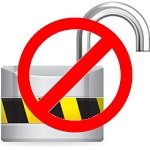 As of 26 January it is now illegal for Americans to unlock their mobile phones, or cellphones. The surprising – and some would think bizarre – regulation is the result of a ruling by Library of Congress revoking an exemption under the USA’s Digital Millennium Copyright Act (DMCA).
As of 26 January it is now illegal for Americans to unlock their mobile phones, or cellphones. The surprising – and some would think bizarre – regulation is the result of a ruling by Library of Congress revoking an exemption under the USA’s Digital Millennium Copyright Act (DMCA).
According to an article in the American University Intellectual Property Brief: “The DMCA makes it illegal to ‘circumvent a technological measure that effectively controls access’ to copyrighted material, in this situation software embedded in phones that controls carrier access. Unlocking a cellphone is a common practice for those wanting to change cell carriers. Unlocking the phone involves removing certain security features that keep the phone set in a particular mobile carrier’s network.
"Unlocking a cellphone is different than jailbreaking the phone, which involves opening up the phone to run additional software. Jailbreaking is still legal for cellphones. Unlocking a cellphone also allows users to carry their phones across networks – a particularly handy feature when users are travelling internationally.”
The Library of Congress was given the power under the DCMA to create exemptions to the Act. Many argue that the exemptions only serve to highlight the failings of the Act in the first place. According to the technology blog site Techdirt: “Just the fact that they have to do this every three years should show how ridiculous the anti-circumvention clause of the DMCA is. Basically, it's so screwed up that, every three years, the Librarian of Congress gets to randomly decide when the law can be ignored.”
In the case of the mobile phone law, it appears a decision from 2010 decision that “software is licensed rather than sold” was a driver of the decision to revoke the exemption.
The article in the Intellectual Property Brief continues: “Despite the options, some are fighting back. Technology advocacy group Electronic Frontier Foundation (EFF) is contesting the DMCA’s right to mandate who is allowed to unlock a cellphone. EFF attorney, Mitch Stolz, sent a letter to TechNewsDaily.com: ‘Arguably, locking phone users into one carrier is not at all what the DMCA was meant to do. It’s up to the courts to decide.’
“A petition to make unlocking cellphones legal on the White House website has over 10,000 signatures…and is aiming to reach the 100,000 figure by late February. Under the new White House rules, the petition will need the 100,000 signatures in order to receive a formal response from the White House. Only time will tell whether the Library reverses itself on what many people deem a costly and unnecessary regulation for consumers.”
A statement by T-Mobile, which has recently been promoting its ‘Bring Your Own Phone’ SIM-only tariffs reads: “Increasingly consumers are looking for choice and flexibility in the way they purchase wireless. They want the freedom to bring their own device without having to compromise on value, which is why we will continue to make it easy for consumers to bring unlocked, GSM-compatible devices to T-Mobile.
“T-Mobile recommends customers contact the device manufacturer or AT&T directly to request the unlock code for their device. Customers would then purchase a SIM card, select a T-Mobile SIM card only Value plan that suits their needs and T-Mobile will help the customer configure their device for its network. T-Mobile offers step-by-step instructions at retail and on the T-Mobile customer support forums online.”
The author of the Intellectual Property Brief article, Priya Mahajan, concluded: “Fingers crossed this ridiculous law only stays put until someone can wake up whoever thought this was a good idea.”